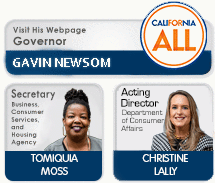Impact of the New Regulation on Employers and Health Care Providers
The Respiratory Care Board (RCB) has adopted a regulation at California Code of Regulations, title 16 (CCR), section 1399.365 that classifies basic respiratory tasks and services that may be performed without a respiratory assessment. The regulation is intended to promote patient safety and consumer protection by providing clarity on how respiratory tasks are categorized for regulatory purposes.
This page provides general information to assist employers and health care providers in understanding how CCR section 1399.365 applies to staffing and task assignment within healthcare settings.
What This Means for Employers and Health Care Providers
- Employers should ensure that respiratory tasks are assigned in a manner consistent with applicable scope of practice laws and the task classifications identified in CCR section 1399.365.
- Basic respiratory tasks identified in CCR section 1399.365(b) do not require a respiratory assessment.
- Respiratory tasks and services listed in CCR section 1399.365(c) are not classified as basic respiratory tasks and require a respiratory assessment.
- Job descriptions, internal protocols, and staffing practices should reflect applicable laws and regulatory task classifications.
- Clear communication regarding task classification supports patient safety and consistent practice across healthcare settings.
- Concerns regarding respiratory care practices may be submitted to the RCB through its complaint process at www.rcb.ca.gov.
Note for Speech-Language Pathologists (SLPs)
Under Business and Professions Code § 2530.2(d)(4), speech-language pathologists are authorized to perform suctioning when it is within their scope of practice and when facility training requirements are met.
References & Implementation Tools
- Facility Self-Audit Tool – A resource to assist facilities in reviewing policies and practices for consistency with CCR § 1399.365.
- CCR § 1399.365 – Printable Version (PDF) – A printer-friendly copy of the regulation for reference and staff education, updated to reflect the emergency amendment effective January 12, 2026.
Exempt Settings – Statutory Authority and Rulemaking Status
California law includes statutory exemptions under Business and Professions Code section 3765, subdivisions (i) and (j), which identify certain home and community-based exempt settings where licensed vocational nurses (LVNs) may perform respiratory care services that are identified by the RCB, subject to specific conditions.
An emergency amendment approved by the Office of Administrative Law (OAL) and effective January 12, 2026, added subsection (d) to CCR section 1399.365. This amendment clarifies that section 1399.365 does not apply to LVNs performing respiratory care services identified by the RCB while working in, and under the conditions specified for, the exempt settings listed in Business and Professions Code section 3765, subdivisions (i) and (j).
At its November 14, 2025 Board Meeting (Agenda Item 3), the Board approved proposed regulatory text identifying the respiratory care tasks and services that LVNs may perform in these exempt settings. Staff is continuing the formal rulemaking process with the OAL.
Employers and other stakeholders who wish to receive updates as this process moves forward are encouraged
to join the RCB’s email subscription list:
Subscribe for Updates
Need More Information?
For a full overview of basic respiratory tasks and services under CCR section 1399.365, please visit the Basic Respiratory Tasks and Services page.
Common questions about CCR section 1399.365 are addressed below:
Contact the RCB at (916) 999-2190 or rcbinfo@dca.ca.gov.




